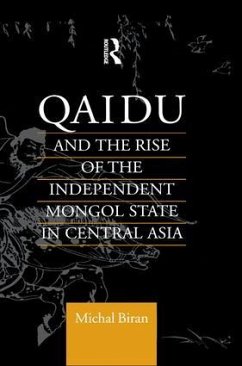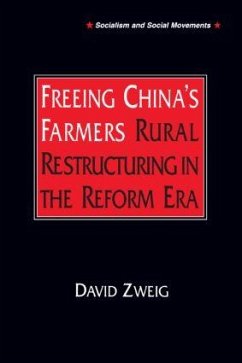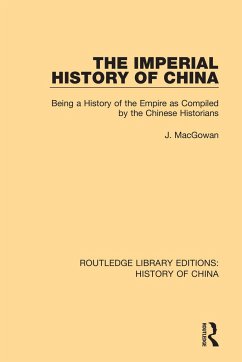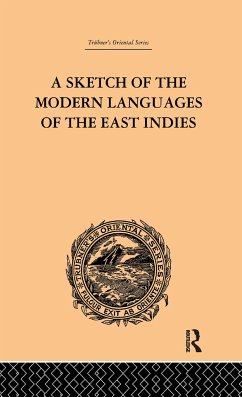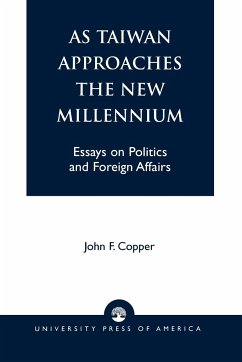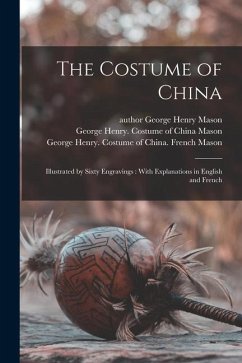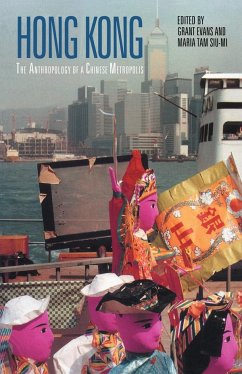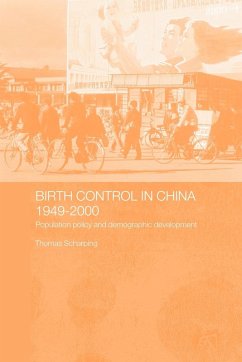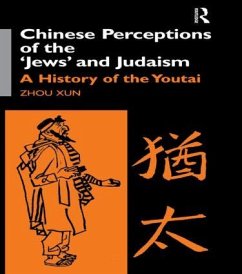Nicht lieferbar

The Cultural State of Contemporary Taiwan
Volume 17
Versandkostenfrei!
Nicht lieferbar
This special issue is devoted to exploring the highly contested cultural and political space that makes up contemporary Taiwan. Examining a range of topics—from social formations, institutions, and legal discourse to popular culture, literary creativity, and cinematic representation—contributors to “The Cultural ‘State’ of Contemporary Taiwan” define what it means to live in Taiwan. The seven essays in this issue represent a broad spectrum of academic approaches that include sociology, anthropology, legal studies, film studies, literary studies, and cultural theory. One essay inves...
This special issue is devoted to exploring the highly contested cultural and political space that makes up contemporary Taiwan. Examining a range of topics—from social formations, institutions, and legal discourse to popular culture, literary creativity, and cinematic representation—contributors to “The Cultural ‘State’ of Contemporary Taiwan” define what it means to live in Taiwan. The seven essays in this issue represent a broad spectrum of academic approaches that include sociology, anthropology, legal studies, film studies, literary studies, and cultural theory. One essay investigates Taiwanese who have relocated to Shanghai in search of a secure economic future. Another uses psychoanalysis to examine potentially fascist representations of Taiwan in Japanese manga. The third essay addresses the legal status of women in Taiwan in various marital situations and historical periods. The fourth discusses literary representations of the juancun, or soldiers’ villages, which were common enclaves for retired military personnel and their families. Also featured in this issue are explorations of literary portrayals of the aftermath of the February 28, 1947, massacre and resulting White Terror events, as well as a consideration of the philanthropy practiced by the massive Ciji corporation, which holds more power in the world than Taiwan’s recognized government. The final essay offers a careful study of the films of Cai Mingliang and Chen Guofu and focuses on the way that contemporary Taiwanese cinema handles questions of consumer society, urban alienation, and sexual and emotional relationships.




